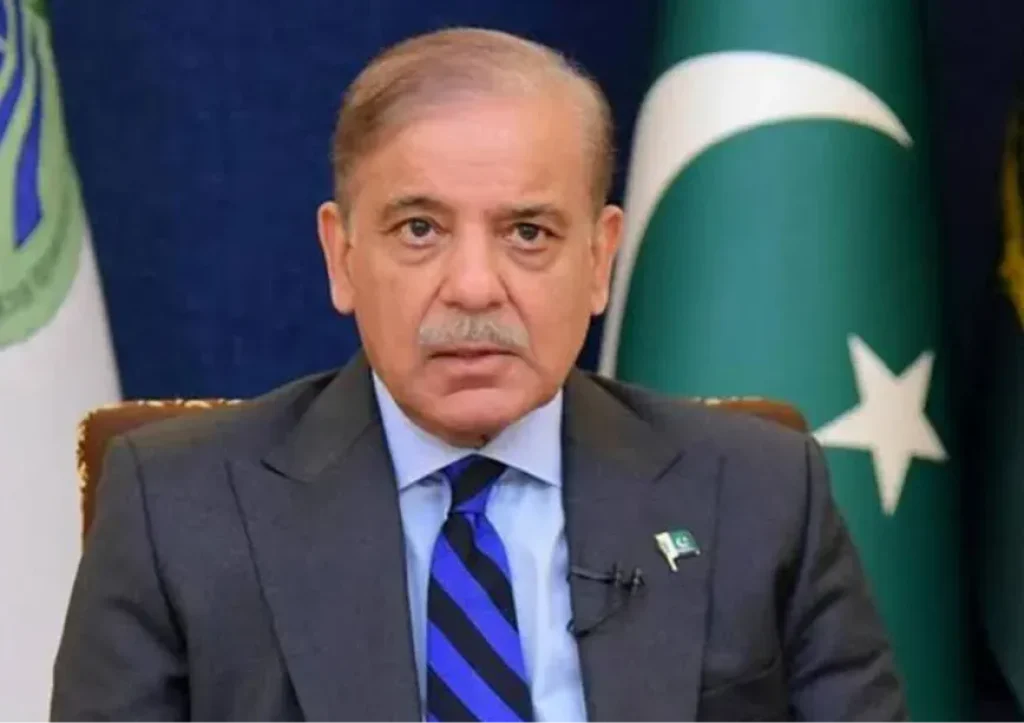Shehbaz Sharif
All about Shebaz Sharif, the two-time Prime Minister of Pakistan, with Shebaz Sharif news, latest updates, wiki, biography & other information updated and tracked continually.
Shehbaz Sharif, born on September 23, 1951, in Lahore, Pakistan, is a prominent Pakistani politician and businessman. He served as Chief Minister of Punjab three times, focusing on infrastructure, education, and health reforms. After the 1999 military coup, he spent years in exile before returning to power. Shehbaz became Prime Minister of Pakistan in April 2022 after a successful no-confidence motion against Imran Khan. His leadership style is characterized by hands-on governance and development-driven policies.

Shehbaz Sharif Information
| Name | Mian Muhammad Shehbaz Sharif |
| Born | September 23, 1951 |
| City of Birth | Lahore, Pakistan |
| Parents | Muhammad Sharif |
| Education | Government College University (GCU), Lahore |
| Political Party | Pakistan Muslim League (Nawaz) – PML-N |
| First Term as Chief Minister | 1997-1999 |
| Second Term as Chief Minister | 2008-2013 |
| Third Term as Chief Minister | 2013-2018 |
| First Term as Prime Minister | April 11, 2022 – March 3, 2024 |
| Re-elected as Prime Minister | March 3, 2024 |
| Major Achievements | Infrastructure projects in Punjab, Health and Education Reforms, Re-elected as PM in 2024 |
| Spouse | Nusrat Shehbaz, Tehmina Durrani |
| Children | Hamza Shehbaz, Salman Shehbaz, Rabia Imran |
| Legacy | Known for administrative acumen, development projects in Punjab, and stabilizing leadership as PM |
Shehbaz Sharif Early Life and Education
Mian Muhammad Shehbaz Sharif was born on September 23, 1951, in Lahore, Pakistan, into a prominent industrialist family. He is the younger brother of Nawaz Sharif, a three-time Prime Minister of Pakistan. Shehbaz completed his early education in Lahore and attended Government College University (GCU) Lahore, where he earned a Bachelor’s degree in Business.
Shehbaz Sharif Business Career
Before entering politics, Shehbaz Sharif was involved in the family business, the Ittefaq Group, which was one of Pakistan’s leading steel conglomerates. He played a significant role in expanding the business, but the family’s industrial empire faced nationalization during the 1970s under Prime Minister Zulfikar Ali Bhutto’s government.
Shehbaz Sharif Political Career
Shehbaz Sharif entered politics in the 1980s, following in the footsteps of his elder brother, Nawaz Sharif. He joined the Pakistan Muslim League (PML), which later became Pakistan Muslim League (Nawaz) or PML-N, under the leadership of his brother. In 1988, he was elected to the Punjab Provincial Assembly, and in 1990, he was elected to the National Assembly. However, his political career gained significant momentum when he became the Chief Minister of Punjab in 1997.
Chief Minister of Punjab
Shehbaz Sharif served as the Chief Minister of Punjab, Pakistan’s most populous and politically influential province, for three non-consecutive terms (1997-1999, 2008-2013, and 2013-2018). His tenure as Chief Minister was marked by a focus on infrastructure development, education reform, and healthcare improvement. He became known for his hands-on administrative style, often personally overseeing development projects. Shehbaz introduced several key projects, including the Lahore Metro Bus, educational reforms, and health initiatives like the Punjab Health Reforms Roadmap.
His leadership in Punjab earned him a reputation as a capable and efficient administrator, distinguishing him from other politicians in Pakistan.
Challenges and Exile
Shehbaz Sharif’s political career was not without challenges. Following the military coup by General Pervez Musharraf in 1999, which ousted Nawaz Sharif’s government, Shehbaz was imprisoned and later went into exile in Saudi Arabia along with his family. He returned to Pakistan in 2007 and resumed his political activities, eventually regaining his position as Chief Minister of Punjab.
Shehbaz Sharif as Prime Minister of Pakistan
In April 2022, after a successful no-confidence motion against Imran Khan, Shehbaz Sharif was elected as the 23rd Prime Minister of Pakistan. His tenure as Prime Minister has been focused on addressing economic challenges, managing Pakistan’s relationships with its neighbors and the broader international community, and navigating the complexities of coalition politics.
On March 3, 2024, Shehbaz Sharif was re-elected as Prime Minister of Pakistan for a second term, securing 201 votes in the National Assembly against 92 votes for PTI-backed candidate Omar Ayub Khan, the grandson of Pakistan’s first military ruler. This election followed nearly a month of political deadlock after the February 8 elections, which were marred by allegations of electoral rigging and cheating. Sharif’s re-election underscored his continued influence in Pakistan’s political landscape amidst ongoing controversies.
Shehbaz Sharif Personal Life
Shehbaz Sharif has been married multiple times and has five children. His son, Hamza Shehbaz, is also a prominent politician and has served as Chief Minister of Punjab. The Sharif family has been a significant force in Pakistani politics for decades.
Shehbaz Sharif Legacy and Influence
Shehbaz Sharif is regarded as one of Pakistan’s most influential politicians, particularly known for his administrative acumen and development-focused governance. His leadership in Punjab has left a lasting impact on the province, with many infrastructure and development projects associated with his tenure. As Prime Minister, his role in navigating Pakistan through a turbulent political and economic landscape will be a significant part of his legacy.




